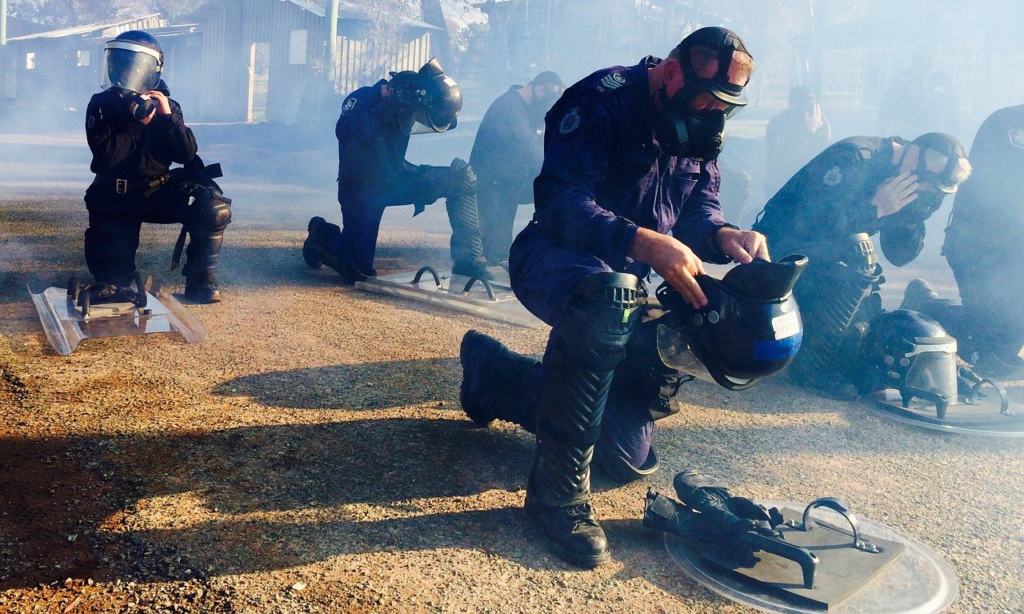
- admin
- March 13, 2020
- 12:07 pm
- No Comments
Preparing Police Officers for the Emotional Trauma that Comes with the Job
Being a police officer is a demanding and stressful career. Police officers are often exposed to the worst of humankind, and are called upon to make split-second life and death decisions.
They also regularly deal with predatory, impulsive, and violent members of society and are expected to put their lives on the line while confronting cruelties and unimaginable horrors to protect the general public.
Not to mention they are often the first responders to terrible terrorist incidents such as the Sandy Hook Elementary School shooting, being left to navigate the horrific aftermaths of these events.
Seeing innocent people murdered due to the whims of a madman is enough to drive anyone into a deep depression. Police officers regularly suffer from emotional trauma and are often diagnosed with Post-Traumatic Stress Disorders.
According to ABC News, a record number of police officers died due to suicide in 2019. Statistics show that over 200 officers took their lives last year, compared to 172 the year before that.
Not to mention that there is a rising number of police officers who are unable to withstand the grueling demands of the job!
Identifying Emotional Trauma
Even the most resilient and experienced law enforcement officers aren’t safe from the emotional toll of the job.
Every police officer has a breaking point, and it can be triggered by a single traumatic incident, eventually developing into a full-blown posttraumatic stress disorder.
According to data, over 50% of law enforcement officers experience psychological trauma following a highly stressful event.
There are signs that indicate a police officer might be suffering from PTSD or burnout. These include:
Intrusive memories
One of the most common symptoms of emotional and psychological trauma is unwanted and recurrent distressing memories involving a particular event. A study to find out how many police officers experience PTSD reported that 80% of participants admitted seeing images of severely assaulted victims and dead bodies they encountered even after the case had been closed.
Reliving traumatic events in dreams or experiencing a severe physical and emotional reaction to situations that remind the officers of the traumatic event is also a sign of emotional trauma.
Avoidance
Police officers who struggle to cope with the emotional distress they have experienced during the course of the job also tend to avoid talking and thinking about the event.
This is a form of denial and a coping mechanism that is employed by officers to avoid people, places, or activities that trigger a memory of the incident. In the most severe cases, the officers isolate themselves from society completely.
Negative behavioral and physical changes
Symptoms of emotional and psychological trauma also include changes in mood, thinking, and behavior. People with PTSD often feel hopeless about the future, lash out unexpectedly, are prone to anger issues, feel detached from their loved ones, have severe mood swings, and find it difficult to be positive. The negativity also impacts their physical health and they often give in to physically destructive behaviors such as substance abuse and neglecting their health.
The Elephant in The Police Station?
The high rate of mental health disorders among law enforcement officers indicates the need for proper mental health support, as well as behavioral treatments. However, there is a big barrier to police officers getting proper help and that is treatment resistance. There is a certain level of stigma and shame attached to seeking help for emotional and mental distress within the police culture.

Showing any weakness is considered a big faux pas within the law enforcement community. Police officers are reluctant to seek treatments for fear of being considered unfit for the demands of their job. The potential negative career impact and concerns regarding confidentiality usually stop officers from seeking help.
Preparing for emotional trauma experienced in the field
An officer in deep personal crisis can be more of a liability than an asset. They can also be volatile and unpredictable and can put public safety at risk. More law enforcement agencies are introducing various mental health care and support programs to prepare officers for the emotional trauma that comes with what they face in the field. These include:
Encouraging an Environment of Trust and Open Communication
By allowing police officers to speak about the effects of a certain traumatic event, the agency creates an environment of trust and open communication. This encourages officers to be comfortable, allowing them to acknowledge their feelings rather than ignoring them and suffering in silence. It will also help them get the help they need.
Encourage Counseling and Periodic Mental Health Checkups
Counseling can be extremely helpful and therapeutic. It encourages officers to show their vulnerabilities and discuss the overwhelming feelings following emotional trauma in a safe and confidential environment.
Accepting the feelings is the first step toward healing. Counseling ensures that the officer doesn’t feel isolated and feel alienated from society. By openly encouraging regular mental health checkups, the agencies can remove the stigma attached to getting professional help and show the officers that they care about their mental health.
Place Greater Emphasis on Emotional Intelligence
Emotional intelligence is considered a crucial requirement for police officers nowadays. It allows them to identify the emotions they feel, manage them, identify the emotions of others around them, and can separate those emotions from their own.
Being aware of their emotions lets people manage their stress and anxiety by using self-monitoring. They feel more in-charge and are more accepting of their emotional reactions rather than feeling ashamed or overwhelmed. It also allows them to get proper help before the emotional trauma takes over their lives!\
Want to Become A Successful Police Officer? Take the First Step and Register Today!
Civil Service Success offers comprehensive exam preparation classes and workshops to prepare candidates for various civil service exams in New York.
Our range of courses and exam preparation packages train applicants for civil service positions such as NYC firefighters, NYS court officer, Suffolk County Police, and NYC Sanitation Worker.
Get in touch with us to learn more about our extensive curriculum, preparation tests, course material, and experienced instructors!

